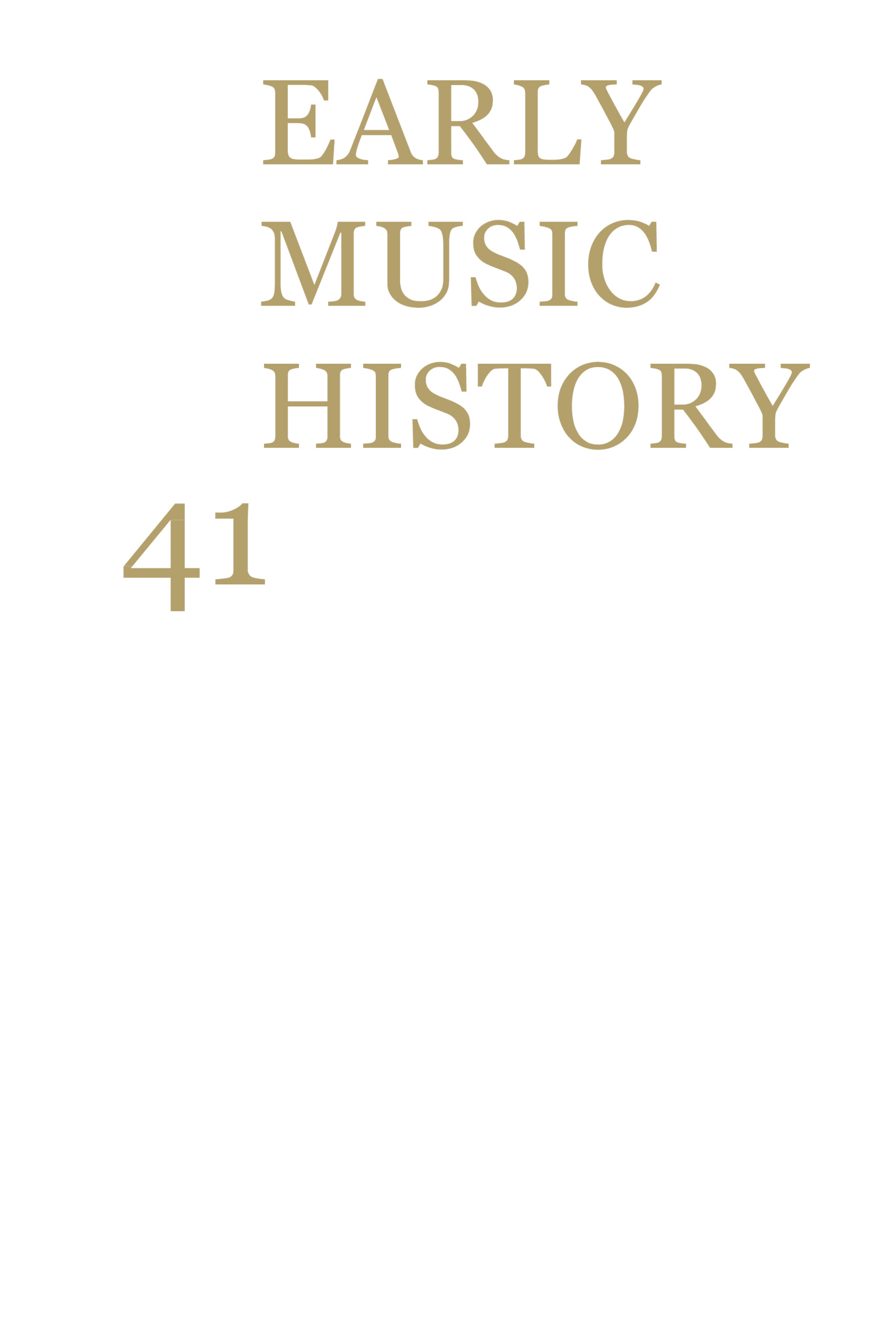EUNUCHI CONJUGIUM: THE MARRIAGE OF A CASTRATO IN EARLY MODERN GERMANY
Published online by Cambridge University Press: 14 July 2005
Extract
Although the castrato played a central role in seventeenth- and early eighteenth-century musical life, he occupied a position at the margins of early modern society. As a consequence of the surgical alteration of his body and the superior musical training that he received as compensation for his ‘acquiescence’ in that act, he found himself navigating a path through a bifurcated world. For him, the surgery had both public and private consequences: while society would publicly celebrate his vocal virtuosity, it would also circumscribe his private activities, and withhold from him the right to marry, or to enjoy an intimate relationship with a woman. As he soon realised, the realities of his special status meant that many of those who would revel in his phenomenal vocal abilities would also ridicule him as effeminate and as a sexual misfit, and would accuse him, ironically, of possessing a voracious sexual appetite that rendered him a threat to women. When he travelled north to work in German-speaking societies, particularly those in which the Lutheran confession held sway, that simple migratory act instantly compounded the number of those qualities that contributed to his ‘Otherness’: while in his homeland his standing as an emasculate and a musician already set him apart from others, in Lutheran regions, his status as a foreigner, an adherent of an outlawed (and highly suspect) confession, and a member of a privileged group that moved in the rarefied atmosphere of the local court all served to intensify his marginality.
- Type
- Research Article
- Information
- Copyright
- © 2005 Cambridge University Press
Footnotes
- 5
- Cited by


